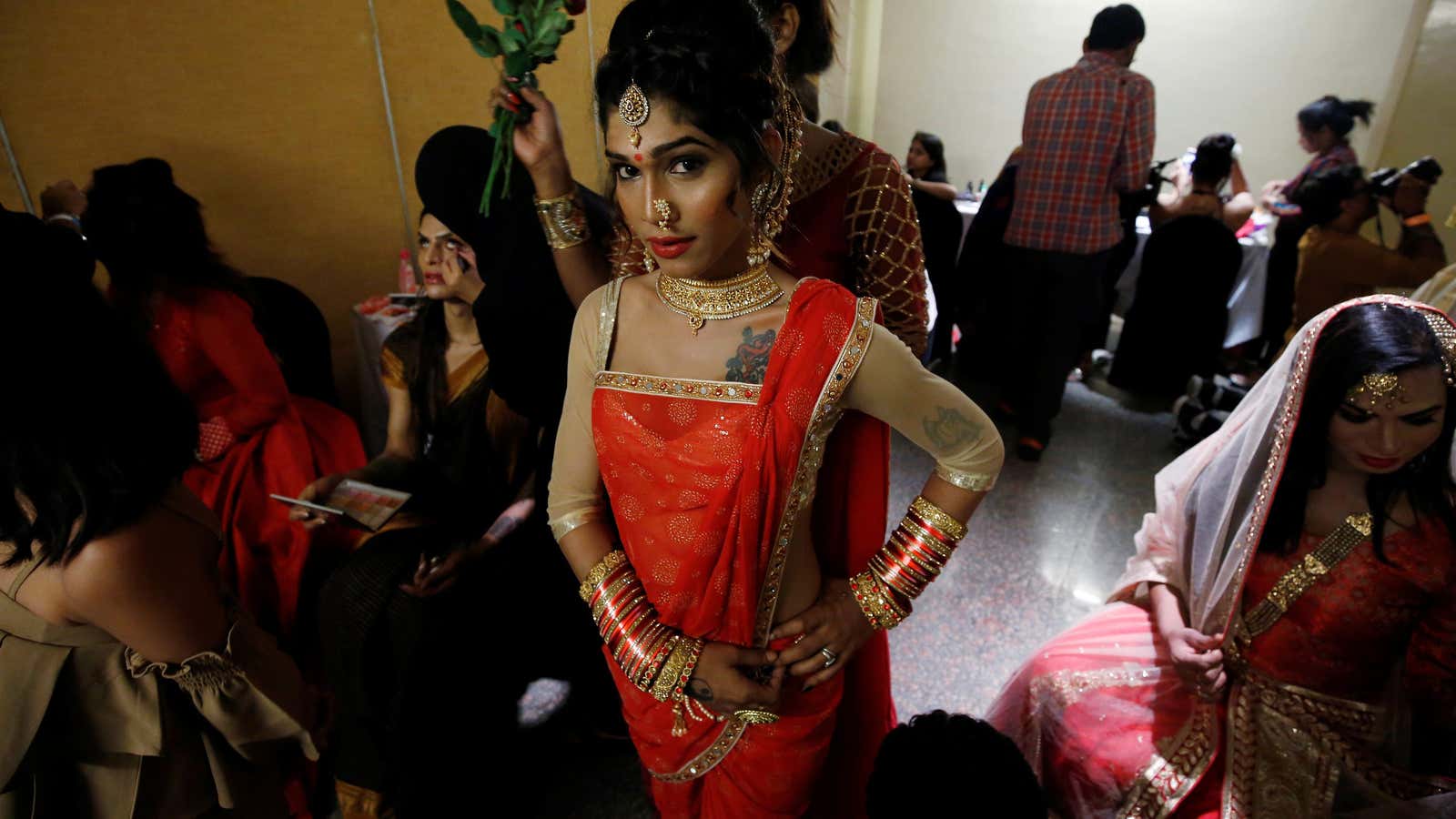“Transgenders are an abhinn ang (integral part) of our society,” said India’s minister of state for social justice and empowerment, Krishan Pal Gurjar, while introducing the controversial Transgender Persons (Protection of Rights) Bill, 2019, in the Lok Sabha, the lower house of parliament, on Aug. 5.
Home minister Amit Shah had used the same words to describe Jammu & Kashmir while introducing radical provisions in the Rajya Sabha, the upper house of parliament, to make the region an “integral part” of India.
The passage of a landmark bill protecting the rights of an “integral part” of society was expected to involve hours of nuanced debate. Instead, the Transgender Rights Bill was passed in a couple of hours. The rhetoric of nationalism was used to quell protests by those whom the Bill seeks to represent—like the transgender activist Grace Banu, who marked the day as “Gender Justice Murder Day.”
Of the 22 members of parliament (MPs) who discussed the bill, 15 belonged to the ruling Bharatiya Janata Party (BJP) or its allies. The suggestions and amendments moved by the other seven MPs were merely ignored.
All of this seems to suggest that the push for transgender rights by the government was never about empowering the 440,000 transgender Indians, but a publicity stunt to showcase inclusive nationalism to the world at large.
Contested terrains
Ever since the government made its version of the Transgender Rights Bill public in August 2016, the legislation has met with vociferous protests from the transgender community.
The 2016 bill problematically defined transgender individuals as “neither wholly female nor male” and went as far as to require transpersons to appear before a screening committee that would determine their gender identity. Moreover, that bill criminalised begging, which not only forms a part of the trans culture in South Asia but is also the only means of survival available to the vast majority of transgender people abandoned by their families.
Massive public mobilisation by transgender activists ensured that the 2016 bill could not clear both the houses of parliament. In July this year, the government made amendments to the bill and reintroduced it in the lower house.
The 2019 version changes the definition of “transgender” and does away with the criminalisation of begging. It also provides for penal provisions for crimes committed against the transgender community. But these are less stringent than those for crimes committed against women, which effectively renders transgender people as second-class citizens.
Most importantly, the 2019 bill keeps in place a regressive certification process while failing to provide affirmative action for the transgender community in politics, employment, or education. The bill also fails to expand the definition of family to include families of choice, like hijra gharanas, and refuses to address a range of issues that characterised the complex nature of trans identities in India.
The way forward
While the Transgender Persons (Protection of Rights) Bill, 2019 has been passed by the Lok Sabha, it still requires the assent of the upper house of parliament (where the BJP-led government does not enjoy an absolute majority) to be enacted as law. In 2016, protests by hundreds of members of the transgender community in New Delhi had forced the government to rethink its policy actions and spurred the set of amendments that became a part of the 2019 bill. Similar protests later on this year might yield positive results, bringing together the queer community across the country under a common struggle.
The outcome of India’s struggle for transgender rights will have a decisive impact on the movement for LGBTQ+ rights across South Asia. The framing of the law will impact how similar laws are created by neighbouring nations, from Bangladesh to Nepal, complementing the learnings from a similar law passed by Pakistan to effectively tackle the unique challenges faced by transgender communities in the subcontinent.
While flawed, the Transgender Rights Bill remains the product of one of the longest and most powerful transgender rights movements.
For the first time, it takes a holistic approach towards transgender rights. There is now a need to extricate it from regressive nationalist politics, moving it towards a broader intersectional framework of progressive queerness. Because should it be effectively revised, and should it succeed in its implementation, the law will provide a template for the true social, economic, and political emancipation of the transgender community for countries across the world.
We welcome your comments at [email protected].
